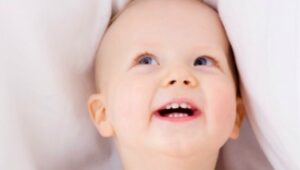Baby Bottle Tooth Decay
Baby Bottle Tooth Decay is referred to as ECC – early childhood caries (cavities). Baby bottle caries is defined as decay in one or more teeth in a child under the age of six.
Caries on primary teeth affect up to 23% of children aged 2 to 5, making ECC the most common cause of tooth loss in childhood.
Causes of Baby bottle tooth decay:
- The interaction of bacteria and sugars on a vulnerable tooth surface causes Baby Bottle Tooth Decay.
- When a baby’s teeth are exposed to sugary foods, such as carbohydrates, for an extended period of time, the risk of developing caries increases.
- Putting a baby to bed with a feeding bottle in his or her mouth is one of the main causes.
- Without a post-feeding rinse, bacteria from the liquid food promote the formation of cavities. (Instead, Dentists recommend giving the child a sippy cup with water in it.)
- Caregivers, typically mothers, can also pass bacteria to children, causing caries to develop or worsen.
- For example, when you put the baby’s feeding spoon in your mouth and then back to the baby, cariogenic bacteria are passed to the baby’s mouth. Bacteria in the mouth ferment sugars, causing demineralization and enamel loss.
- A lack of fluoride makes your child’s teeth more prone to demineralization and, as a result, caries.
- Poor oral hygiene, as well as improper brushing techniques, contribute to the development of early childhood caries.
Signs of Baby bottle tooth decay:
The signs and symptoms of Baby Bottle Tooth Decay differ from child to child. ECC features that are common include:

- White spots on the teeth’s surface may indicate early sensitivity.
- Brown cavities can turn dark due to the destruction of the tooth crown.
- In severe cases, the child may complain of tooth pain and an inability to eat.
- Sensitivity to specific foods, such as hot or cold beverages.
- ECC first affects the incisors, leaving children with only root stumps in front. The decay can potentially spread to other teeth, including the molars.
Preventive measures of ECC:
- Good oral hygiene is the primary strategy for protecting your child from dental cavities. You can avoid Baby Bottle Tooth Decay by doing the following:
- Take your baby to the dentist as soon as his or her first teeth appear, and then again every six months.
- Brushing the child’s teeth, tongue, and gums twice a day for about two minutes with fluoride toothpaste.
- Flossing should be done twice a day for children over the age of two.
- Keep an eye on your child’s diet and feeding schedule. Snacks high in sugar, such as candies, should be limited.
- Avoid Using a feeding bottle containing sugary liquids to put a baby to bed.
- Cleaning the pacifier with water and avoiding any other activity that could pass bacteria to the baby.
Treatment:
Early childhood caries treatment options vary. The appropriate treatment is determined by the child’s symptoms, age, and overall health.
- Restorative dental procedures such as fillings are used in treatment.
- But extraction may be required in severe cases.
- In mild to moderate cases, your dentist will remove the decayed portion of the tooth and replace it with a synthetic material known as a dental filling or restoration. Restoration can be direct or indirect:
- Teeth-colored resin, silver, fine glass powder, or acrylic are used to make direct restorations. These direct fillings only require one visit.
- Crowns, bridges, onlays, inlays, and veneers are examples of indirect restorations that require at least two visits to be repaired.
Consequences of Baby Bottle Tooth Decay?
If left untreated, Baby Bottle Tooth Decay disrupts your child’s appearance, speech, and chewing, as well as causing abnormal permanent tooth development.
During secondary dentition, your baby’s teeth may become crowded. To avoid these negative outcomes, parents and caregivers must address the disorder as soon as possible.


